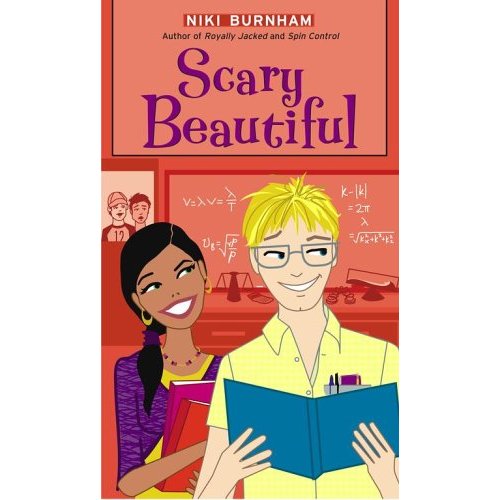
There's an interesting discussion going on in the blogosphere about the irony that some perfectly good books that adults would like to read are being consigned to the ghetto of YA (my very loose paraphrasing, read more from the YA author Jennifer Lynn Barnes' perspective here).
In following the conversation, I realized that I've formed a conviction, over the years of being a teen, raising teens, and writing for teens, that YA fiction is an important genre because it focuses on the formative years of human beings. Those years where boys and girls become men and women, figure out (or fail to) what they're going to do with their lives, and how they are going to choose to live them. YA -- from Holden Caulfield to Harry Potter -- is about taking on the mantle and power of individuality, responsibility, and autonomy.
Is is unsurprising that such powerful subject matter should be of interest to adults? Ummmm...no! But that it grips and fascinates those who are actually living through the transition? Ummmm...duh!
When I was a teen, I loved to read about characters living very different lives from me -- much harder lives, much easier (on the surface) lives, lives full of important choices that really mattered. Because, really, even though I was a bookworm non-sports nerd, I recognized that all the choices I made in those years mattered. I agonized over quitting band in high school (right decision, because it opened up the ability to join the bowling team...yes, really). I pushed myself to get involved with school plays (not in them, actually, just makeup artist and general dogsbody). In short, I tried a lot of things that I wasn't sure I was suited for, merely because I had "practiced" them in the pages of a book beforehand. I also avoided a lot of problems because of what I read, too.
It isn't really surprising that a lot of YA is told in first person. And it isn't really surprising that adults, accidentally visiting the YA ghetto, find themselves transported to the time when they were sixteen and stood on the edge of their future willing for the courage to dive into it.
I think the Simon Pulse RoComs capture this feeling perfectly, don't you? Where else can you, the reader, work in a theme park as a costumed character, try on fashion design, date a prince, join a band, star in a play, work behind the scenes in Hollywood...and so much more?
I know, I know, that sounds like a commercial. But...every so often the truth sounds like a commercial, so what are you going to do? Maybe that's the secret appeal of YA to those living the teens, and to those of us who remember them well?
Kelly
























3 comments:
Great post, Kelly. My thoughts exactly. When I come up with a plot for a book, sometimes it *could* be an adult book, but I tend to think in YA because the stakes are automatically raised. Everything means so much more when you're a teen, or seems to.
Jenn -- not only seems to, but parents, teachers, bosses, aunts, uncles and random cranky adults tell teens so every day.
Kelly
(who just yesterday told a 19 year old who happens to live in her house that something wifty he did at work will now be on his **permanent record** at said employer...sheesh)
It seems like most of my writing career has been targeted. When I wrote children's animation - I was aiming at Pre-K. When I wrote for Nickelodeon it was tween world. And, when I work in YA it's for teens. But the truth is, I've always enjoyed that focus. But, while I've always been aware of the narrowness of the ghetto as it were, none of it ever felt small. Hopefully, what it does, is eliminate some of the self-importance that turns writing into bloviating. You could argue that Huck Finn is a YA Novel. But that doesn't make it smaller. I find it interesting that some of my very favorite writers - Carl Hiaasen and Michael Chabon - have recently added kid fiction to their output. I think it is because the stakes are so hi. And because the universality of the plots. Everyone - and I mean everyone - has been that kid in high school who just can't figure out how he or she fits into the world. And and that common anxiety provides the perfect opportunity for humor and insight.
Post a Comment